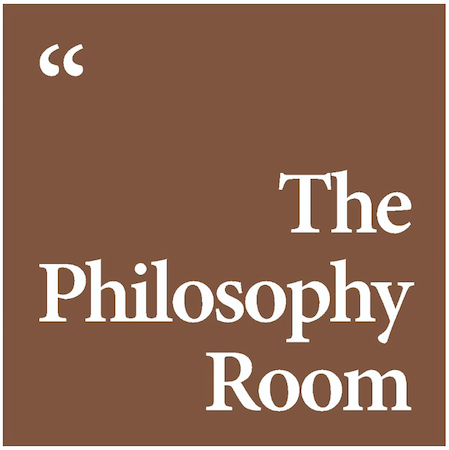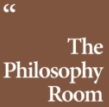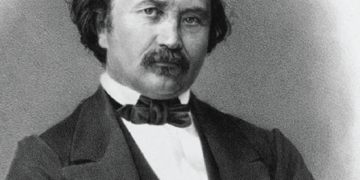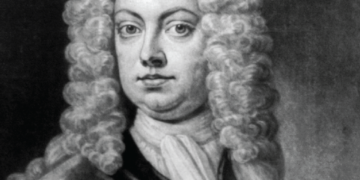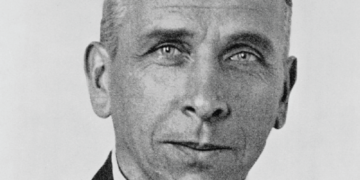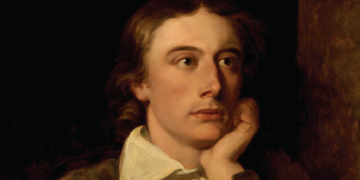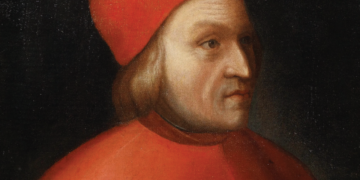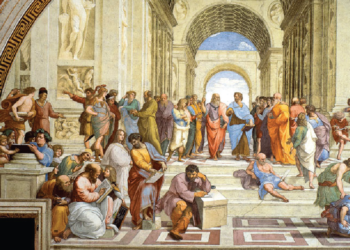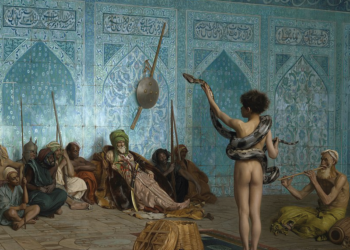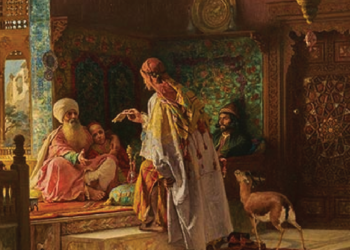Louise de Kéralio
1) Her Biography
Louise de Kéralio was born on 14 January 1758 in Paris into a family steeped in intellectual and aristocratic tradition. Her father, Louis-Félix Guynement de Kéralio, was a military man and writer, and her mother, Françoise Abeille, was known for her own literary leanings. From an early age, Louise was surrounded by a milieu that encouraged education, critical thinking, and active participation in intellectual life. Her upbringing, while privileged in its access to ideas and conversation, was also marked by a growing awareness of the constraints imposed on women in Enlightenment France, a paradox that would define much of her later work and activism.
Kéralio received a comprehensive education at home, which included classical languages, philosophy, history, and literature—an opportunity afforded to very few women of her time. Her precocity became apparent in her teenage years when she began translating works from Italian and English into French. She would go on to translate over sixty volumes, including those by Henry Fielding and Sarah Fielding, bringing English sensibilities and narratives to a French readership increasingly hungry for Enlightenment ideals. These translations were more than linguistic exercises; they were acts of intellectual mediation that placed her in the vanguard of transnational literary culture.
By her early twenties, Kéralio had moved beyond translation and into the realm of political writing and historical commentary. She contributed to the Journal des dames, a publication aimed at elevating women’s voices in French public life. Her historical writings, notably Collection des meilleurs ouvrages françois composés par des femmes, sought to recover the contributions of women to French literary history, demonstrating an early feminist consciousness rooted in historical recovery and cultural critique. This anthology, published between 1786 and 1789, was the first of its kind in France and remains a landmark in the historiography of women writers.
Her political engagement intensified during the early years of the French Revolution. She was an early supporter of revolutionary change and used her pen to advocate for constitutional monarchy and civil liberties. In 1789, she began editing the newspaper Le Mercure national, through which she articulated her vision for a France built on reason, justice, and merit rather than inherited privilege. Her role as a female editor in revolutionary journalism was extraordinary for the time and underscored her commitment to reshaping not only political structures but also the gendered boundaries of public discourse.
Louise de Kéralio’s political stance was complex and evolved as the Revolution progressed. While she initially supported the Revolution, she grew wary of its radical turn. Her marriage to the revolutionary François Robert, a prominent Montagnard, drew her deeper into the political tumult, although her own views remained more moderate. She distanced herself from the Jacobin excesses and the Reign of Terror, instead advocating for a vision of citizenship that remained rooted in Enlightenment rationalism and a cautious optimism about reform.
As the Revolution gave way to Napoleonic consolidation, Kéralio withdrew from public life. Like many female intellectuals of her generation, the post-revolutionary years offered little space for the kind of civic engagement she had once championed. She devoted herself to private study and correspondence, gradually receding from the public eye. However, her earlier works continued to circulate among scholars and reformers interested in the intersection of gender, education, and politics.
She died in 1822, largely forgotten by the dominant narratives of French revolutionary history. Yet her contributions—as translator, editor, historian, and political thinker—have in recent decades been re-evaluated and recognised as foundational to feminist thought in France. Her life was emblematic of a generation of women who used the brief window of revolutionary upheaval to assert their intellectual agency, even as the political structures they helped to shape failed to fully include them.
2) Main Works
Collection des meilleurs ouvrages françois composés par des femmes (1786–1789)
This ambitious 14-volume anthology was a pioneering effort to collect and republish significant literary works by French women writers. Kéralio’s objective was to showcase the intellectual and artistic capabilities of women throughout French history. She provided critical introductions and contextual commentary for each piece, framing the contributions as essential to national literary heritage. It was both a scholarly endeavour and a political statement, advocating for the recognition of women’s intellectual labour and helping establish a proto-feminist literary canon in France.
Le Mercure national (1789–1791)
Although not a single authored book, Kéralio was editor-in-chief of Le Mercure national, one of the first periodicals of the French Revolution. The publication functioned as a platform for discussing political reform, civil rights, and constitutional monarchy. Through her editorial leadership and regular articles, Kéralio shaped revolutionary public opinion and modelled how a woman could occupy a central role in political journalism. Her contributions often reflected a moderate Enlightenment view, advocating reform but cautioning against extremism.
Lettres d’Emilie à Sophie sur la nouvelle Heloïse (1785)
In this epistolary work, Kéralio engaged directly with Jean-Jacques Rousseau’s famous novel Julie, ou la Nouvelle Héloïse, through a fictional correspondence between two women. This text functioned both as a literary critique and a philosophical reflection on love, virtue, and the education of women. Kéralio offered a subtle feminist reading of Rousseau, questioning his portrayal of women’s emotional roles and advocating instead for their intellectual development. The work revealed her capacity to blend literary criticism with philosophical insight.
Translation of The History of Tom Jones, a Foundling by Henry Fielding (1778–1779)
Kéralio translated this monumental English novel into French, bringing one of the major works of English literature to a broader Francophone audience. Fielding’s satirical approach to class, morality, and justice resonated with Enlightenment ideals, and Kéralio’s translation was noted for its faithfulness and elegant prose. Her translation helped promote the novel’s themes in France and solidified her reputation as a skilled cultural mediator between English and French literary spheres.
Translation of The Adventures of David Simple by Sarah Fielding (1780)
This translation represented Kéralio’s interest in promoting women writers across national boundaries. Sarah Fielding, the sister of Henry Fielding, had crafted a novel that explored morality, empathy, and social isolation. Kéralio’s translation not only preserved the novel’s introspective tone but also added a preface discussing the importance of women’s voices in literature, subtly aligning Sarah Fielding’s work with her own feminist values.
Projet d’éducation pour les femmes (unpublished but documented in correspondence, c. 1785)
Although never published as a standalone book, Kéralio developed a detailed proposal for the reform of women’s education, fragments of which appear in her other works and letters. She argued that women should be educated not simply for domesticity, but for active participation in civil society. Her vision was both pragmatic and revolutionary, combining Enlightenment rationalism with a bold insistence on intellectual equality between the sexes.
Contributions to Journal d’État et du Citoyen (1789)
Kéralio also contributed essays and commentary to this revolutionary publication, focusing on constitutional issues, popular sovereignty, and the responsibilities of citizenship. While not compiled into a single volume, these pieces reflect her belief in reasoned public discourse and constitutional governance. Her writing here complements her editorial work at Le Mercure national, showing a commitment to political moderation and participatory democracy.
3) Main Themes
Women’s Intellectual Agency and Literary History
A consistent and central theme in Kéralio’s work is the assertion of women’s intellectual capacities and the recovery of their contributions to literature. In her Collection des meilleurs ouvrages françois composés par des femmes, she constructed a counter-narrative to male-dominated literary history by spotlighting forgotten or marginalised female authors. This was a revolutionary act in 18th-century France, where women were often denied public recognition. Kéralio’s introductions and editorial choices positioned women not merely as muses or moral influences, but as thinkers, authors, and cultural producers in their own right. This theme aligned her with later feminist literary historians who sought to re-establish women’s voices in cultural memory.
Enlightenment Rationalism and Moderate Reform
Kéralio was deeply influenced by Enlightenment philosophy, particularly its emphasis on reason, education, and moral progress. Her writings in Le Mercure national and Journal d’État et du Citoyen reflect her belief in constitutional government, civil rights, and measured reform rather than radical revolution. She championed rational discourse and thoughtful debate, viewing reason as the path to societal improvement. Unlike more radical figures of the Revolution, Kéralio maintained a commitment to Enlightenment moderation, which shaped her political writings and critiques. Her faith in rational inquiry was also visible in her pedagogical writings, where she argued that women should be educated as moral and civic agents.
Translation and Cultural Mediation
Kéralio’s translations of major English works reveal her role as a cultural mediator between France and the Anglophone world. Through her careful and accessible renderings of authors such as Henry and Sarah Fielding, she introduced new models of fiction, moral philosophy, and character development to a French audience. This work was more than linguistic; it was ideological, allowing her to subtly infuse French discourse with foreign ideas on individual freedom, social mobility, and narrative complexity. Her prefaces to these translations often included reflections on the values conveyed by the texts, highlighting her belief in literature as a tool for moral and cultural dialogue.
Feminist Critique of Social and Gender Norms
While Kéralio never identified herself as a feminist in the modern sense, her work consistently interrogated the roles assigned to women in both private and public life. In Lettres d’Émilie à Sophie, she engaged with Rousseau’s representations of femininity and love, challenging his relegation of women to passive emotional roles. She called instead for women’s inclusion in intellectual life and their education beyond the domestic sphere. Her critiques were subtle yet pointed, aiming not only to reveal the limitations of dominant gender ideology but also to propose alternatives grounded in Enlightenment pedagogy and civic participation.
Education as a Tool for Empowerment
Closely related to her feminist concerns was Kéralio’s focus on education as a transformative force. She argued that the education of women was essential for a just and rational society. Her unpublished Projet d’éducation pour les femmes, as well as her commentary in various journals, proposed curricula that included history, philosophy, and literature. She rejected the notion that women should be educated solely for marriage or motherhood, instead imagining them as future citizens capable of reasoned judgement. This theme places her alongside other Enlightenment reformers like Mary Wollstonecraft, though Kéralio’s approach was more cautious and anchored in existing French pedagogical models.
Political Responsibility and the Public Sphere
Kéralio was one of the few women to participate actively in the political journalism of revolutionary France. Her work in Le Mercure national illustrates her belief that citizens, including women, had a duty to engage in public discourse and help shape policy through informed opinion. She viewed writing and editing as civic responsibilities, using her platform to advocate for constitutional monarchy, political moderation, and the rights of citizens. This emphasis on responsibility over rhetoric distinguished her from more incendiary revolutionaries and positioned her as a thinker who believed in reform through structure and civic engagement rather than through upheaval.
Historical Consciousness and Collective Memory
In compiling historical anthologies of women’s literature, Kéralio was engaging in what would now be called the politics of memory. She understood that collective identity was shaped by the stories cultures chose to remember or forget. Her Collection was therefore not just literary but historiographical—it aimed to correct the record and redefine who counted as a contributor to French intellectual life. She framed history as a means of empowerment, not merely a repository of facts but a contested terrain where recognition and erasure could determine future possibilities. This theme, though implicit, runs through her editorial choices and justifies her recovery of marginalised voices.
4) Kéralio as a Journalist
Louise de Kéralio’s role as a journalist was both pioneering and deeply influential within the intellectual and political landscape of late 18th-century France. At a time when women were largely excluded from the public sphere, she entered the volatile world of revolutionary journalism with remarkable courage and intellectual clarity. Her most prominent position was as editor-in-chief of Le Mercure national, a publication she led from 1789 to 1791. Under her guidance, it became a platform for moderate revolutionary thought, advocating constitutional monarchy, rational political reform, and civil liberties. Her editorial direction demonstrated a commitment to Enlightenment principles while navigating the complexities of a rapidly changing political environment.
Kéralio’s editorial work involved more than administrative oversight; she actively contributed articles and editorials that addressed the pressing issues of the day. She critiqued aristocratic privilege, supported the National Assembly’s efforts to draft a constitution, and called for broader civic participation. Importantly, she used her position to carve out a space for female intervention in political discourse, challenging the pervasive idea that women had no role in public affairs. Though she often couched her arguments in the language of Enlightenment moderation, the act of assuming editorial authority as a woman was itself radical. Her journalism blurred the lines between intellectual commentary and political activism.
As a journalist, Kéralio embodied a model of political engagement that balanced reasoned debate with moral concern. Her writings were notable for their clarity, precision, and attention to the philosophical underpinnings of political decisions. Unlike the more sensationalist or radical pamphleteers of her time, she avoided incendiary rhetoric, instead advocating for steady reform and the cultivation of civic virtue. In this sense, her journalistic output aligned closely with the values of figures like Condorcet, with whom she shared a belief in enlightened progress and inclusive citizenship.
One of the most striking features of her journalistic career was her ability to mediate between competing political camps. She was neither fully aligned with the royalists nor with the increasingly radical Jacobins. This nuanced position allowed her to critique both extremes and maintain a voice of reason during the Revolution’s early, unstable phases. However, as the political climate became more polarised and violent, Kéralio’s moderate stance placed her in a vulnerable position. By 1791, her influence waned as more extreme voices began to dominate the revolutionary press.
Despite these challenges, Kéralio’s presence in journalism had a lasting symbolic and practical impact. She became a role model for other women attempting to enter the public sphere and was an early advocate for freedom of the press as a cornerstone of democracy. Her belief in the educative function of journalism—that it should not only inform but morally uplift the citizenry—echoed Enlightenment ideals while foreshadowing later debates about media responsibility. Her work offered a vision of journalism not as mere reporting, but as civic duty and moral engagement.
In addition to her own writings, she used her editorial position to promote voices that might otherwise have been silenced. She encouraged contributions that reflected a diversity of opinion within the revolutionary camp and was careful to maintain a tone of dialogue rather than diatribe. This editorial openness, though risky in a time of growing censorship and political reprisals, demonstrated her belief in public discourse as the engine of political progress. Her vision of journalism was pluralistic, educational, and deeply intertwined with the moral development of the nation.
Kéralio’s withdrawal from journalism around the time of the Reign of Terror was partly due to personal disillusionment with the revolution’s violent turn, but it also reflected the closing of public space for moderate voices—particularly those of women. The press had become a battleground for factions, and the rational, reformist voice she had cultivated was drowned out by more polarising rhetoric. Nonetheless, her earlier work stands as a rare and valuable example of female authorship in revolutionary political media, one that helped shape a vision of the press as a forum for rational public debate.
In retrospect, her role as a journalist serves as a crucial dimension of her legacy. She was among the first women in France to use the press as a platform for political intervention, and she did so with intellectual sophistication and moral conviction. Her contributions to revolutionary journalism remain an early and powerful example of how women could shape the public sphere, not merely as muses or subjects, but as authors and agents of change.
5) Her Legacy
The legacy of Louise de Kéralio is one marked by intellectual courage, cultural innovation, and a pioneering commitment to gender equality in the public sphere. Although largely forgotten in the centuries following her death, modern scholarship has increasingly recognised her as a foundational figure in both feminist intellectual history and revolutionary thought. Her work as a writer, translator, editor, and journalist positions her as one of the most remarkable female thinkers of late 18th-century France. Her legacy lies not only in the texts she produced but also in the broader symbolic challenge she posed to the boundaries of women’s roles in Enlightenment and revolutionary society.
One of her most enduring contributions is the compilation Collection des meilleurs ouvrages françois composés par des femmes, which was the first literary anthology in France devoted solely to works by women. In an age when literary history was overwhelmingly male, Kéralio’s project asserted the value of women’s contributions to national culture. By recovering and reprinting forgotten or marginalised texts, she laid the groundwork for a feminist historiography of literature. This effort anticipated the later work of 20th-century scholars who sought to rediscover female voices lost to dominant narratives, making her anthology a cornerstone of women’s literary history in France.
Her role as one of the first female political journalists in France has also become a vital part of her intellectual inheritance. At a time when few women had access to platforms for public discourse, Kéralio not only participated in but led a prominent revolutionary newspaper. Her tenure at Le Mercure national showed that women could engage with the pressing political questions of their time not only as commentators but as editorial authorities. This precedent encouraged a rethinking of journalistic authorship and civic responsibility, particularly regarding the role of women in shaping public opinion and democratic debate.
Kéralio’s legacy also includes her stance as a moderate reformist during the French Revolution. Unlike the radical Jacobins or the conservative royalists, she sought a middle path rooted in constitutionalism, education, and civic virtue. While her moderate position eventually became politically marginalised, it has gained renewed relevance in later analyses of revolutionary cycles. Her writings remind us of the fragility of reasoned discourse in times of upheaval and the importance of maintaining moral and intellectual clarity when faced with polarising forces.
Her feminist ideas, though not always overtly radical, have had a significant impact on later generations. Kéralio insisted that women be educated not merely as mothers or wives, but as rational beings and potential citizens. Her pedagogical proposals, epistolary writings, and translations subtly subverted gender norms by insisting on women’s capacity for reason, authorship, and moral judgement. These ideas found fuller expression in the feminist movements of the 19th and 20th centuries, but their roots can be traced to thinkers like Kéralio, who planted the seeds of intellectual equality during a time of considerable social constraint.
The modern revival of interest in her work has been facilitated by feminist historians and literary scholars who recognise in her a unique blend of Enlightenment values and proto-feminist sensibility. Institutions have begun to include her writings in curricula, and her contributions have been cited in studies of revolutionary journalism, gendered authorship, and the Enlightenment canon. Her name has also begun to appear in public commemorations, such as in the naming of streets or schools in France, further symbolising her slow return to collective memory.
Moreover, her multilingualism and work as a translator added a cosmopolitan dimension to her legacy. By introducing English literature to French audiences, she participated in an early form of cross-cultural dialogue that contributed to the transnational Enlightenment. Her translations were not merely acts of linguistic transfer but were interpretive acts that carried philosophical and moral weight. This cosmopolitanism is part of her broader legacy as a mediator between cultures, between genders, and between revolutionary ideals and social realities.
